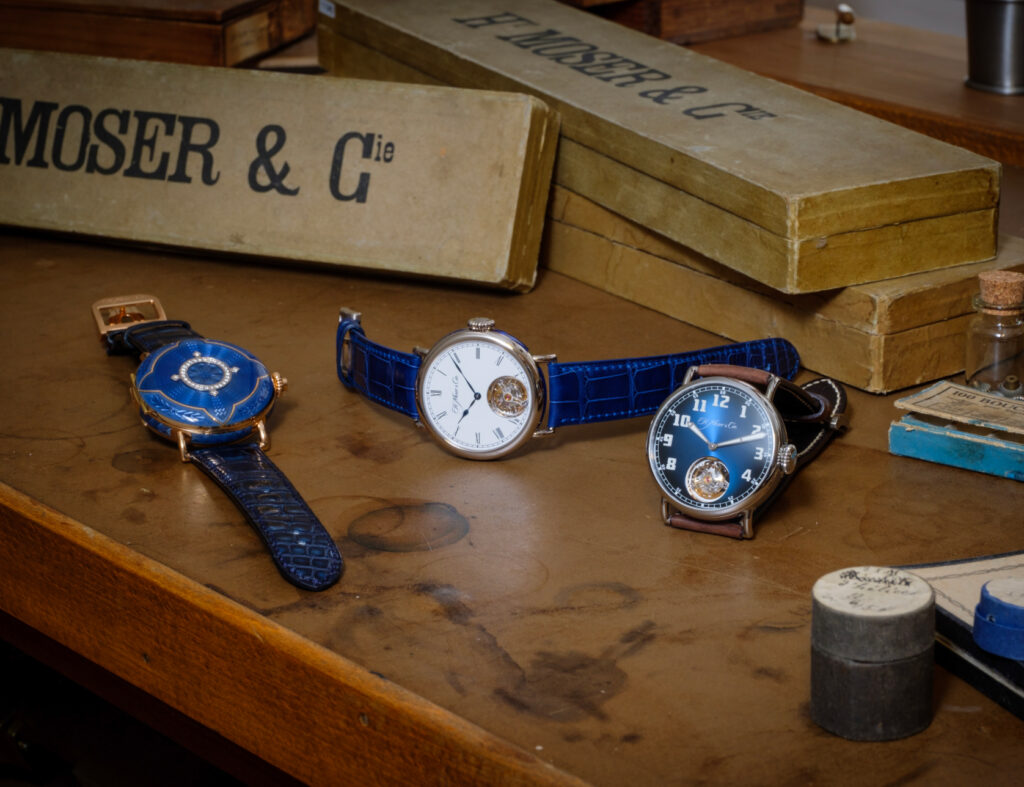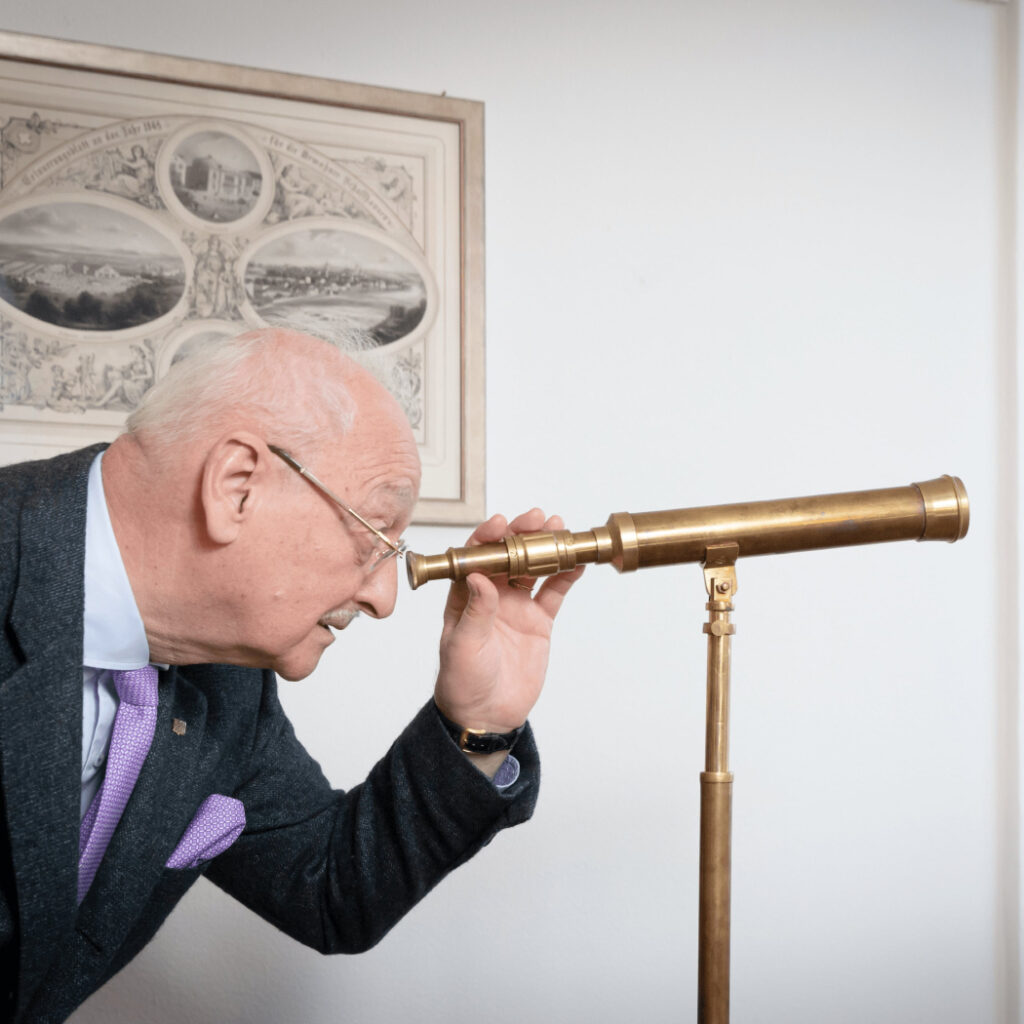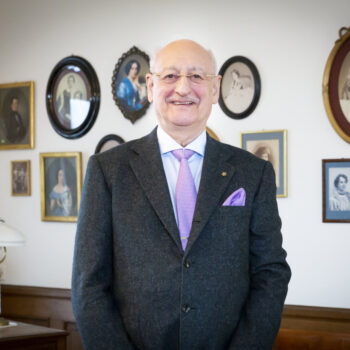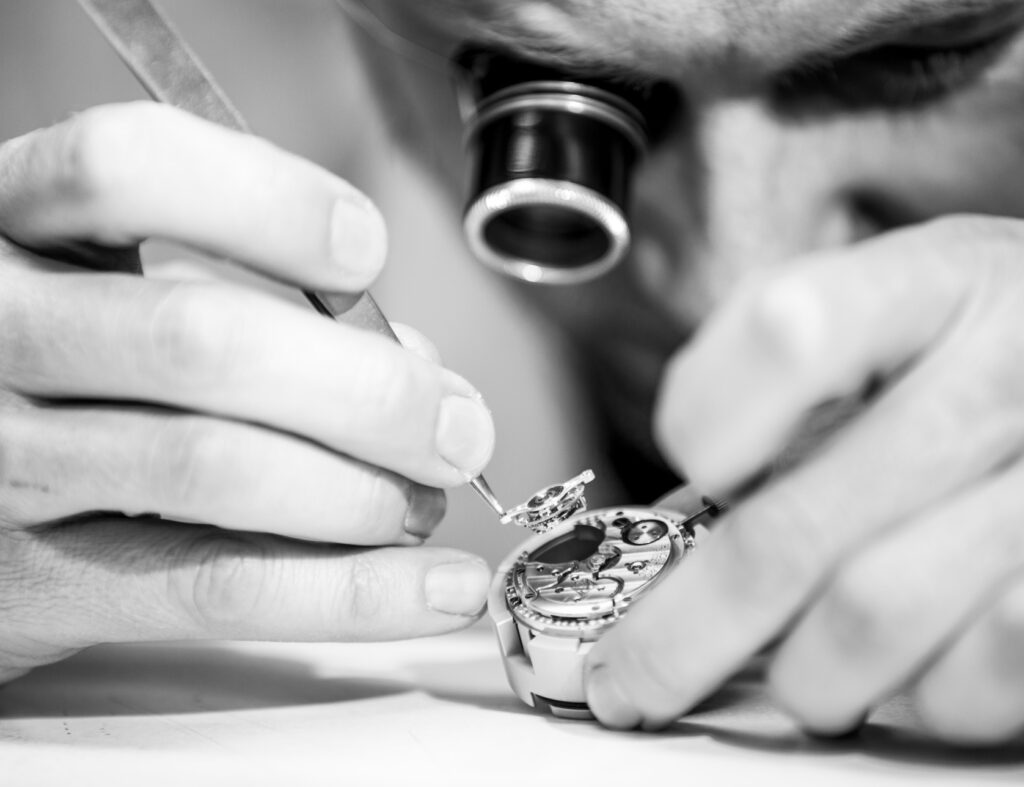And if you could time-travel into the future– where do you see Moser in 50 years?
I would have to speculate quite a bit! Because there would be a different team, new developments – you never know what brilliant innovations will come along. It’s possible it could be passed from one generation of Meylans to the next – keeping it in the family. But even if it changes hands more democratically, I know the spirit of Moser will survive independently, will live on by its ‘point of differentiation’. We are ‘very rare’. And we want to remain distinctly different from other brands, without trying to be anything that we are not.
What does ‘Luxury’ mean to you?
Just as an example, I was once trying to explain to a management seminar why it’s important to know the identity of your business. At that time, Rolex was known as a luxury watchmaking company. And I told this story, about the CEO of Rolex who was asked “are you in the watchmaking business?”. His answer was interesting– he said “No, I’m not. I’m in the luxury business”.
Now, in my opinion, you can only be in the luxury business if you make a limited number of watches to be sold in any one year. But now that Rolex sells hundreds of thousands of watches a year, I wouldn’t consider it a luxury watchmaking company anymore. And of course that’s nothing against Rolex – they make wonderful products and they’re hugely successful as a brand, and as a company. But I think this is where you have to define who you want to be, the identity you create.


Roger Nicholas Balsiger
Honorary Chairman at H. Moser & Cie.
From left to right, The Heritage Perpetual Calendar, The Heritage Tourbillon and the Heritage Tourbillon Funky Blue.
And what, exactly, makes Moser ‘Very Rare’?
At H. Moser & Cie. , we always decided to be a company that does things differently – technologically, creatively, in our design, in our quality, and as a brand. And that also means that we limit ourselves to a maximum number of particular watches we sell in a year. And in our designs and their quality, we will always maintain the standard that we feel our clients expect from us.
Not just the business as a whole, but the people who will be wearing these watches on their wrists. If we continue this way, I strongly believe we’ll have a very bright future. It’s also a ‘very rare’ quality in a business – we’re not seeking out maximum profit by producing thousands more watches every year. Anyway, that kind of thinking wouldn’t be Moser anymore, it wouldn’t be true to our identity.
What story from Moser’s history would you tell to its future watchmakers?
Apart from the great tale of Heinrich Moser, it’s hard to pick one. But there’s a little anecdote, from an important moment in our recent history. In about 2008, hardly three years after we revived the brand, I travelled to Schaffhausen – on an international train to Germany – and I was sitting next to a young German man.
He looked at me and said, “Sir, may I ask you a very personal question ?” I said “Well you can ask it, but I don’t know if I’m going to answer it!” Then he asked, “tell me, is this a Moser watch that you’re wearing ?” I went straight to the workshop at Moser and said “I think we’ve made it”.
To reiterate: we were only in our third year after having displayed our first calibres at the Baselworld! It was an amazing moment, where you realise the world has sat up and paid attention to the work you’re doing – when a complete stranger immediately recognises it. Maybe it was just a lucky coincidence, but it was an unexpected delight.
In the last episode of our interview with Mr. Balsiger, we ask some final probing questions – would a lion ace an IQ test? – and receive some valuable pearls of wisdom from this renowned entrepreneur with the spirit of Moser in his veins.






